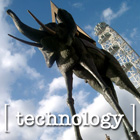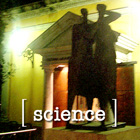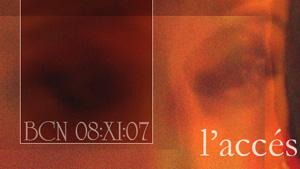
|
||||||||||||||||
|
AS GOVERNMENTS SCRAMBLE TO IMPLEMENT TECHNOLOGICALLY UNSTABLE, UNPROVEN SYSTEMS, INDIVIDUALS LIKELY TO SUFFER FRAUD, LIMITS ON MOVEMENT 26 October 2006 In the wake of major terrorist attacks against densely populated civilian centers in several countries across Europe, Asia and America, governments and private industry are looking at ways of using biometric scanning technology to determine who should or should not have access to certain locations and services. The technology is complicated and highly advanced, but unproven, and potentially highly flawed. There are concerns that RFID chips, which broadcast a weak but constant radio signal, could become a risk for irreversible identity theft. Irreversible, because if your iris-scan, fingerprints or genetic code are stolen off an electronic chip, it would be nearly impossible to correct flawed information generated by those posing as you. But there are more ominous signs that the technology itself is planned not as a protection for the individual, but as a constraint on individual freedoms. UK prime minister Tony Blair declared in 2005 that he intended for a 13-element biometric national ID card to become the "single gateway" to everyday life, meaning that without it, you could be shut out of your own life, or made unequal to your fellow citizens, both in law and in practice. A new program is also underway to secure commercial airports by "tagging" all passengers with RFID chips. The chips would be attached to boarding passes and so would only accompany ticketed passengers, whose movements would then be traced throughout the airport by security staff and dedicated computer systems. When it was reported that the US Department of State intended to require RFID-ready passports for all new applicants (this was slated to begin this month—October 2006), experts expressed concern that devices able to detect low-frequency radio signals could be used by people with malicious intent to determine where there might be a concentration of Americans or —if allies adopt the technology— westerners. Microsoft warned the UK government in 2005 that implementing a biometric national ID-card system would lead to the worst —for being irreversible— identity-theft black market yet seen, and that the technology was essentially not able to be adequately secured according to any commercially available technologies, while methods of breaking into the chips and stealing information was already widely available. In January of this year, Sentido reported on "new trends in compulsory voluntarism" and the problem of "data shadows", left behind after people go through what are becoming ordinary identity checks in daily life. Those data shadows are trails of information which can be used to literally take over the legal and financial identity of an individual, robbing one of the freedom to even access one's own accounts or govern one's own life. Those data trails also provide a tempting field of information for governments, which are seeking to accumulate as quicly as possible as much information as possible about their citizens, precisely where it is useful for tracking movements or interfering with behavior perceived as inconvenient by officials. In some countries, this amounts to direct poilce-based harassment of innocent citizens, to prevent their voicing dissent, while in others it means detaining en masse the organizers of peaceful demonstrations against policies espoused by or championed by the party in government, as happened in Philadelphia in 2002 and in Boston and New York City in 2004, during political conventions. [s]
BACKGROUND: Science is in many ways an artform, but it is specifically and most importantly, the art of knowledge. It is not philosophy, not a study of how knowledge comes about, what it is, whether it can be trusted or whether we need to adjust our thinking; it is, instead, a direct study of the natural world, its tendencies, its evidence, and its capacity to work with us, for us and around us. [Full Story] WARRANTLESS NSA WIRETAPS RULED UNCONSTITUTIONAL A federal judge in Detroit ruled early yesterday that Pres. Bush's NSA surveillance program, which uses wiretaps implemented with no judicial oversight, is unconstitutional. The ruling strongly enforced the point that there are "no powers not created by the Constitution" rejecting the AG's claim that the Congressional Authorization for the Use of Military Force (in Afghanistan) as a legal platform for sweeping new domestic powers. [Full Story] DATA SHADOWS & IMPROBABLE CONSENT Neither contracts nor "terms and conditions" including indemnities disclaimers, can be classified as legislation. They do not make or construct legal limits by themselves. Obvious as this may seem, it is a necessary introduction to the problem of the trade in personal information and "soft surveillance", whereby one is routinely subjected to interrogation, inspection and even physical search, not for having broken any laws or even aroused any reasonable suspicion, but simply because "that's policy". [Full Story] US STATE DEPT. MANDATES NEW PASSPORTS WILL CONTAIN RFID TRACKING CHIPS The State Department has announced it will introduce new passports with electronic features such as Radio Frequency IDentification chips, intended to match information stored on these chips to the bearer's physical appearance, and to other information. Privacy advocates say the move is a giant leap toward a state of totalitarian interference in citizens' movements and personal information. [Full Story] IS YOUR CEREAL BROADCASTING YOUR SECRETS? How much do you know about your cereal, and how much does it know about you? What about your money, your passport, your boarding pass? These are just some of the items in your personal sphere which may soon be broadcasting radio frequencies, testifying to your habits and your movement. RFID, or Radio Frequency IDentification technology, is the reason why. Various private firms are currently researching, designing, producing and selling RFID chips similar to a grain of rice in size and shape, which can be implanted in human beings in order to verify their identity. [Full Story] |
|||||||||||||||
|
||||||||||||||||








